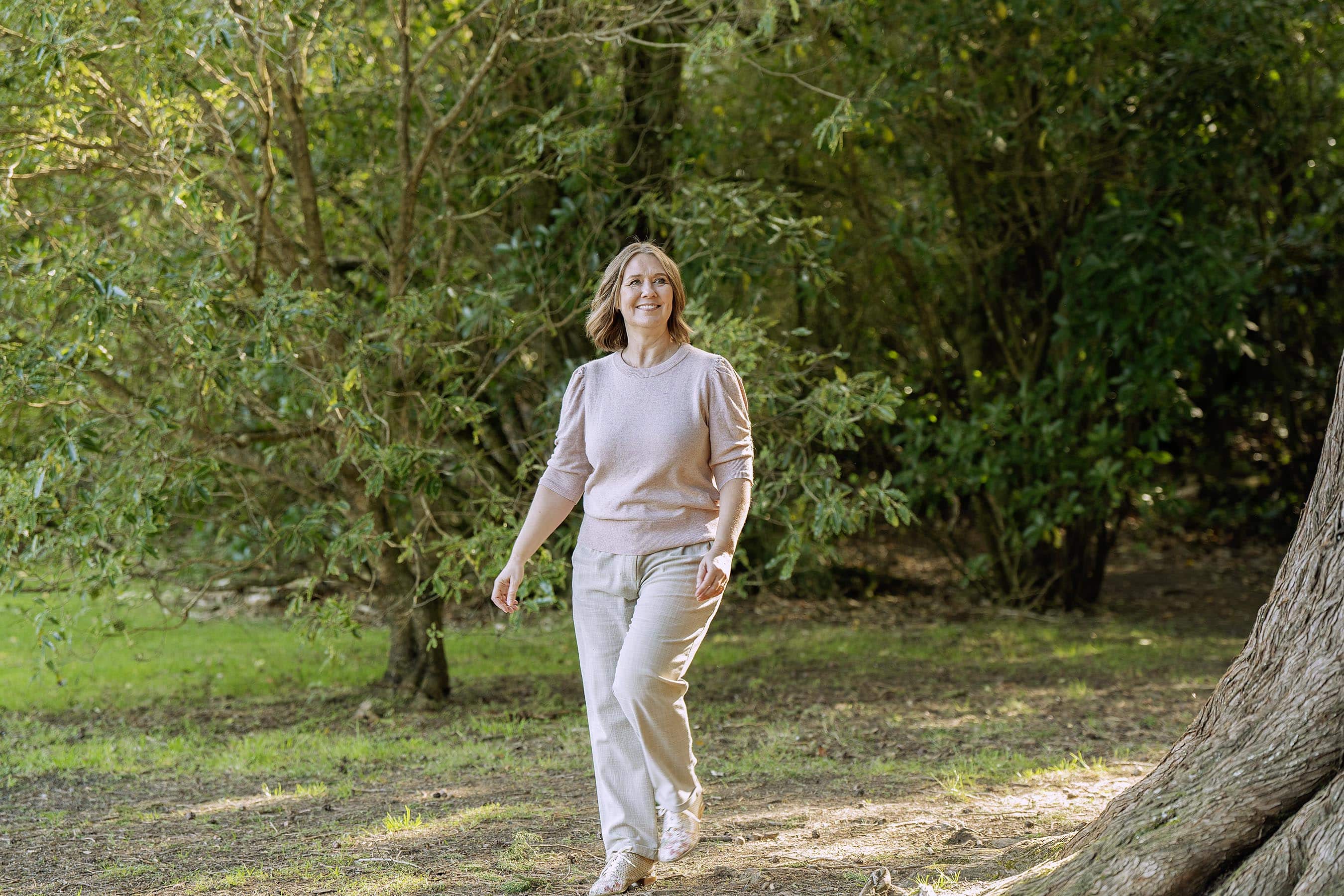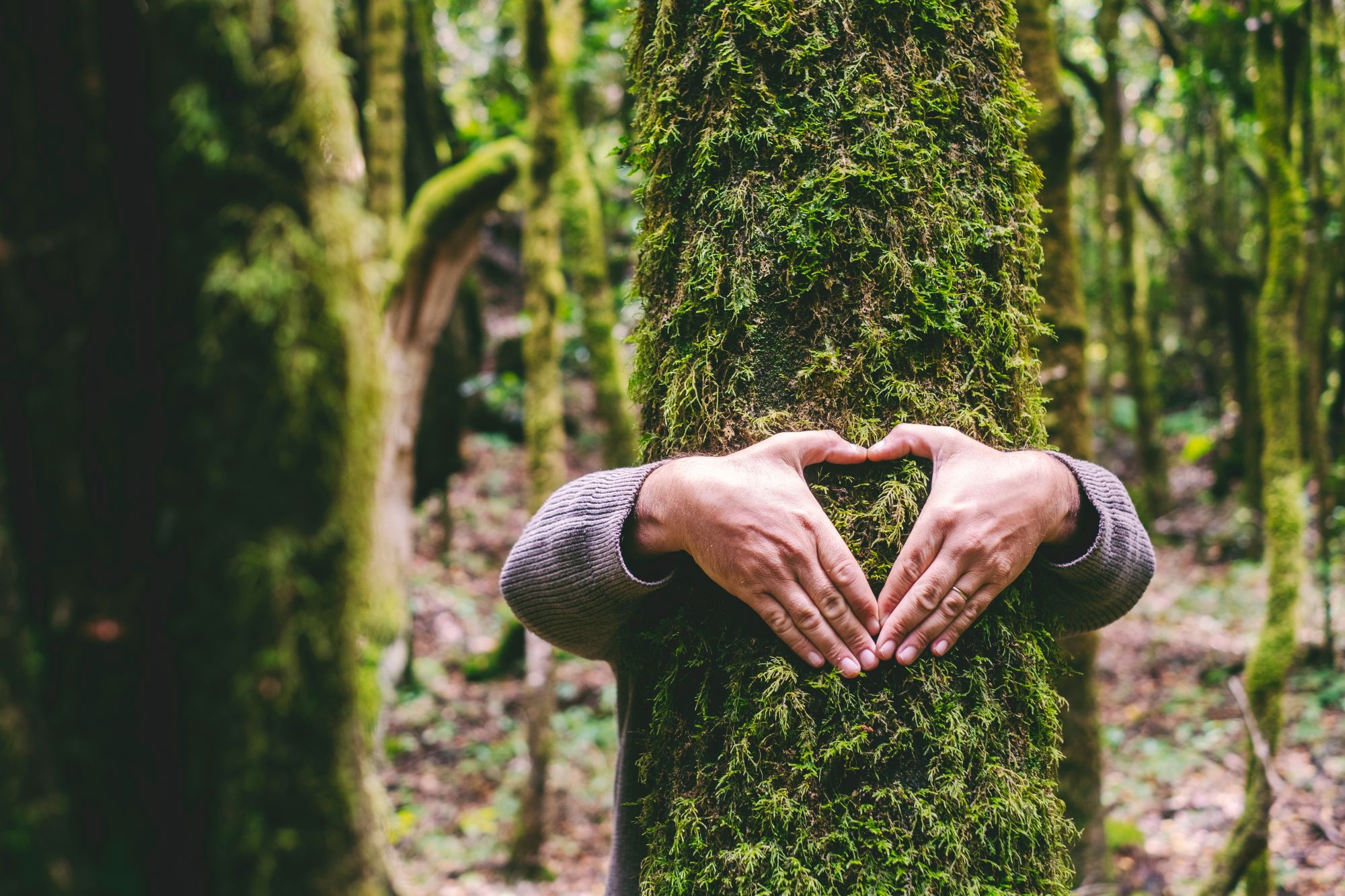It’s time for us to form a deeper connection with our natural selves

Ten thousand years ago, a small group of human beings took the seeds from wild grain and planted them in lightly tilled soil. This tiny innovation heralded the beginning of civilisation and forever changed our perception of nature, and the role we play within it. Today, this new way of being has become so ingrained that most of us have forgotten who – and what – we truly are.
We are nature.
At a physical level, we share the same biological systems, behaviours and most of the genetic makeup of our fellow mammals. At a molecular level, we are comprised of six main elements, (from oxygen to phosphorous), each of which is sourced from the planet that we live on. At a sub-atomic level, we do not exist as individuals but rather as part of the unified energetic field of the universe.
Before our ancestors in North Africa and South East Asia invented agriculture, human beings were largely undiscernible from other animals on the planet. Our tools were more complicated and our language more expressive but, as with other creatures, our lives were attuned to our environments and our actions were largely instinctive and survival-based.
However, since the advent of agriculture and settlement, human life has evolved to look quite different to anything else on Earth.
Over time, as we developed ways to harness and control nature, humans have come to see themselves as somehow separated from the natural world. Our world-views began to reflect this self-belief and by the time the Old Testament was written, nearly three thousand years ago, the idea was cemented that humans were not only separate from nature, but that they also had the right to rule over it.
For those of us in the western world, this concept is ingrained in us since birth. We are bombarded with the idea that nature is something to be feared, oppressed or exploited; we “conquer” mountains, “break” wild horses and watch Bear Grylls challenge harsh environments on “Man vs. Wild”. As we have removed ourselves further and further from nature, we have also begun to disconnect from our own natural and instinctive needs.
Recent studies have shown that the closer we live to nature, the more inclined we are to maintain strong mental health. For instance, a series of Swedish studies confirmed that city dwellers are around 75% more susceptible to psychosis and up to 20% more likely to develop depression than people who live in rural areas.
The truth is that we are an inherent part of nature and, as such, we have the same needs as other natural beings. Even in our modern world, there are several steps we can take to reconnect with our natural selves and enjoy greater emotional, mental and spiritual wellbeing.
Our natural freedom: In recent decades, there has been a wave of concern for the welfare of domesticated and farmed animals. It has become apparent that all creatures deserve the right to live as naturally as possible; with access to sunlight, open spaces and an ability to fulfill natural instincts. This, of course, includes the human creature.
Like all natural beings, we are happiest and healthiest when we are in our natural environment; when we are experiencing a sense of freedom. It is perfectly acceptable to enjoy the comfort and convenience of a modern city, but it is also imperative that we each take time to enjoy sunlight and open spaces, and ensure that our lives are both fulfilling and meaningful.
Our natural rhythms: As civilisation took hold and daily life changed, humans began to rely on man-made concepts of time – the calendar and the clock – and divorced themselves from the natural rhythms of nature. When we remember that we are nature, we give ourselves an opportunity to reconnect with the subtle, natural rhythms of the Earth and the universe.
Everything in nature ebbs and flows, and yet in our busy lives most of us ignore these natural rhythms. Obviously we have remained attuned to the more obvious cycles; the seasons, day and night and, to some extent, the natural changes of the climate. However, there are a multitude of more subtle cycles that most of us are completely unaware of; natural biorhythms, universal synchronicities, and the constant vibration of the energy of which we are formed.
It is interesting to note that several ancient spiritual tools reflect the cyclical nature of the universe. Astrology, numerology and the Tarot are all based on cycles and, if used effectively, can accurately express the way these subtle phases are influencing our lives.
However, even without the use of these tools, it is entirely possible for us each to recognise our natural rhythms; the phases of activity and of rest; of growth and reflection; of deconstruction and regathering. As a natural being, we are constantly subject to these rhythms, and we can enjoy greater wellbeing when we begin to recognise and work with them.

Our natural intelligence: Knowledge, reason and logic have become such an integral part of modern life that many of us have forgotten that these concepts do not fully reflect who we are. In fact, it is logical thought that causes the greatest disconnect from our true nature, and it is in our best interests if we occasionally ‘lose our minds’.
Left brain processes, such as logic and language, are very recent additions to the human mind. (Many right brain processes such as emotion, creativity and intuition were present in our ancestors over 2 million years ago, whereas logic appeared only around 30,000 years ago). Over the last few millennia, our need to know, label and intellectualise has become strong. However, the constant focus on these mental aptitudes has tempted us to ignore our natural instincts to feel, express and intuit.
It is worth remembering that, although highly intelligent, we are still natural beings. Reason, language and logic have evolved in our species in order to enhance our natural state of being, not replace it. Therefore, we can enjoy greater happiness and wellbeing when we allow time to quieten our mind, accept the world without labelling and make more intuitive choices.
The last ten thousand years has seen a remarkable shift in the way that humans live, think and view the world. However, beneath the innovations of our intellectual evolution, we are still natural beings with instinctive needs and desires. As the stresses and diseases of modern life are showing us, civilisation does not offer us all that we need. Intellectual prowess and material success are not the answer to contentment.
In order to be completely fulfilled we, as humans, must acknowledge our instinctive needs and desires. It is time for us to reject the misconception that nature is separate from us, and to acknowledge our inherent responsibility to respect our planet and all other beings. It is time for us to remove the intellectual blinkers and remember who we really are. We may have fancy tools, comfortable homes and complicated language but we are made, like all other life forms, by this beautiful planet. We are nature.
2024 has been my Year of Living Deeper and throughout December, I’m exploring the importance of connecting more deeply with nature, and our natural selves.
Join me on Facebook, Instagram, and LinkedIn for regular tools and tips, and be sure to subscribe to my monthly newsletter as we explore the incredible benefits of natural connection.
